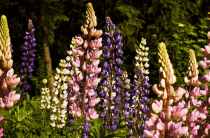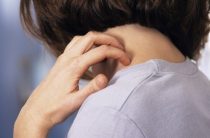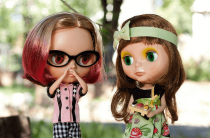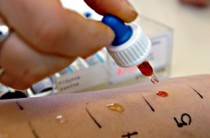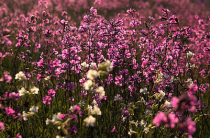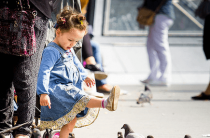Allergy is a disease of all mankind. With each season there are more and more patients with hay fever, which brings a lot of inconvenience and deprivation. The disease does not choose a man or a woman, a child or an old man. Residents of large cities suffer much more often than the rural population. Quite unpleasant is the fact that women suffer from this disease for the first time during pregnancy. All protective reactions of the body are directed to the fetus, the restructuring of the hormonal system reduces the immunity of the pregnant woman and she becomes sensitive to all irritants.
Flower allergy symptoms
Seasonal allergies require careful medical supervision. As soon as a pregnant woman discovers signs of an allergy, it is necessary to run to the doctor. If you start treatment on time, then the disease will go unnoticed and without a trace for both the mother and her child. Among the first symptoms are:
|
|
|
A severe and advanced form of pollinosis is evidenced by anaphylactic shock, which often leads to death. And bronchial asthma cannot be cured at all. From these first symptoms, everything will be clear.
Causes
During pregnancy, the causes of allergies can be anything. And it doesn't have to be plant pollen. Pollinosis can be provoked by pet hair or household dust. An important role is played by heredity. And if this is the reason, then hay fever does not have to be from childhood - it manifests itself at a convenient time for her. Changes in the hormonal background and the restructuring of the whole organism of a pregnant woman provokes many diseases.
It is not enough to know only allergenic plants. It is necessary to take into account the periods of their flowering:
| April May | Birch, oak, poplar, walnut, alder, maple. |
| June July | Wheat, oats, barley, corn, rye, buckwheat, wheatgrass. |
| July - September | Wormwood, ambrosia, quinoa. |
Moms-to-be should avoid them. Often an allergy to a particular pollen causes cross-reactions that should also be considered and avoided. As a rule, these are some foodstuffs.
| Birch and apple pollen |
|
| Grass pollen |
|
| Pollen of wormwood and chamomile |
|
| quinoa pollen |
|
| Ambrosia and dandelion pollen |
|
Avoid these foods if you have hay fever. Their use will definitely aggravate the course of the disease and thereby negatively affect the fetus.
Effect on the fetus
All doctors say that allergies do not directly affect the fetus. The child has reliable protection in the form of a placenta, which simply does not let the allergen through. But, if you do not start treatment, the situation may change. Self-medicating, a woman harms her baby. It is known that many medications are contraindicated during pregnancy. Using them there is an effect on the child, intoxication of him and the mother's body. Which, in turn, entails failures in the development of the internal organs of the fetus.
If the expectant mother suffers from allergic rhinitis, cannot breathe normally, the child may experience oxygen starvation. This has a great influence on the formation of the baby's lungs. Therefore, you should not endure and breathe through your mouth. At night, you cannot control your breathing and there will definitely be delays in exhalation. Throughout her illness, a woman is in a state of stress. It is caused by constant bouts of coughing, rhinitis, constantly itchy skin that irritates. And stress is the main enemy of the expectant mother.
And it has long been a known fact: if the mother had allergies during pregnancy, then in 90% of cases the baby will also suffer from this disease.
Treatment of hay fever during pregnancy
It is quite difficult to find the right and effective drug for pollen allergy, given the fact of pregnancy. Doctors should study the medical history in detail and painstakingly, identify the allergen and, taking into account all the risks, prescribe a course of treatment. The first step on the path to recovery is the exclusion of all contact with the allergen. Often, vitamin therapy is prescribed to reduce allergy symptoms:
| Vitamin C | It relieves coughing attacks, reduces the manifestations of rhinitis and conjunctivitis. |
| AT 5 | Good for allergic rhinitis. |
| AT 12 | Reduces symptoms of asthma, reduces the frequency of coughing attacks. |
| Vitamin PP | Relieves allergy symptoms about hay fever. |
| Zinc | It perfectly resists not only hay fever, but also reduces the symptoms of allergies to household chemicals and dust. |
| Fish fat | Creates a barrier to the development of inflammatory processes. |
But vitamins alone will not give the desired result. They should only be used in combination with antihistamines. Such drugs have three generations, each of which is an improvement on the previous one. The third generation no longer has any adverse reactions, in most cases it is allowed for pregnant women, but it is also more expensive.
First generation drugs include:
- Suprastin. It is prescribed for pregnant women in case of acute allergic reactions. But it is worth noting that in the first trimester it is contraindicated. From the second trimester, it is taken only under the strict supervision of a doctor.
- Tavegil. It is rarely taken by pregnant women, only when prescribed by a doctor, if other drugs do not bring the desired result.
- Dimedrol. It is taken only from the second trimester and with extreme caution. Doctors rarely prescribe this drug because it can cause uterine tone.
Second generation drugs:
- Claritin. It is prescribed by doctors taking into account all possible risks.
- Astemizol. May cause toxic reactions, so it is contraindicated during pregnancy.
- Azelastine. There are quite a few adverse reactions, it is allowed to use from the second trimester.
Third generation drugs:
- Zyrtec and Cetirizine. Safe enough for expectant mothers. Often prescribed by doctors at the first manifestations of hay fever.
- Telfax. It is allowed during pregnancy in any trimester, but only as directed by a doctor.
In order for the effect to be quick and linger for a long time, it is necessary to rid the body of toxic substances. Absolutely safe means for pregnant women can be called activated charcoal and Enterosgel. They absorb allergens well and remove them from the body without harm to the baby.
Among the nasal remedies for allergic rhinitis, nasal rinses are safe. Their main component is sea salt and saline. These solutions maintain the normal state of the nasal mucosa quite well, moisturize it, and thin thick mucus. They have an anti-inflammatory effect, increase the resistance of the mucous membrane to various microorganisms. Such nasal drops include Humer, Aqualor, Aqua Maris, Marimer, Quicks. Allowed at any time during pregnancy. You can also prepare a saline solution for washing yourself using plain salt and water.
From vasoconstrictor drugs should be abandoned for the period of bearing a baby. Means of this group act on the whole body, and not locally (in our case, on the nose). As a result, it can get into the baby's food through the placenta, which is dangerous for its development.
Plant-based drops in most cases are allowed for expectant mothers, if they do not have individual intolerance to the components or allergies to them. They contain essential oils that protect the lining of the nasal cavity. The most famous among these drugs is Pinosol. Quite effectively relieves inflammation of the mucosa, its swelling. Contains essential oils of eucalyptus, pine needles and mint. Apply such drops is not more than five days.
The tendency to use homeopathic remedies has become quite popular. For the fetus, such drops are absolutely safe. But their selection should be carried out by a homeopathic doctor and individually for each woman. All diseases of the pregnant woman, the condition of the fetus, and the general condition of the girl's body are taken into account. EDAS-131 and Euphorbium compositum gained popularity.
Prevention
At the time of bearing a baby, a woman has a suppression of her immunity, which leads to relapses of hay fever. To avoid it, follow these rules:
| Allergen contact | Knowing all the flowering periods of various plants, avoid contact with them. At this time, it is better to go to another climatic zone. Do not breed flowering plants at home. And get rid of poplars under the windows altogether. |
| Air humidity | Install an air conditioner and humidifier in your home. This will significantly increase the humidity in the apartment, the air will be cleaner. |
| Nutrition | Avoid foods that cause cross-reactions. |
| Phytotherapy | During pregnancy, do not resort to herbal medicine and minimize the use of essential oils. |
| Living environment | Do not come into contact with household allergens. These include pets, birds, household dust that accumulates on the surface of carpets and furniture, household chemicals. |
| Immunotherapy | If you are just planning a pregnancy, then in order to avoid the manifestation of allergies, resort to immunotherapy. |
| Nasal lavage | Rinse your nose daily with saline solutions and gargle. |
| Dust | Avoid dusty rooms, roads, stay away from smokers. |
| infections | Various infectious and viral diseases often provoke an allergic reaction. |
| Treatment | Only a doctor should treat hay fever, under his strict control. |
Do not forget to carry out daily wet cleaning of the room. Coming from the street, you must immediately take off your clothes and take a shower. Take walks only in the evening and, preferably, after rain. Close all windows and doors. If you need to open a window, then curtain it with a wet sheet. It will never be superfluous to follow a hypoallergenic diet, especially for a future mother.

